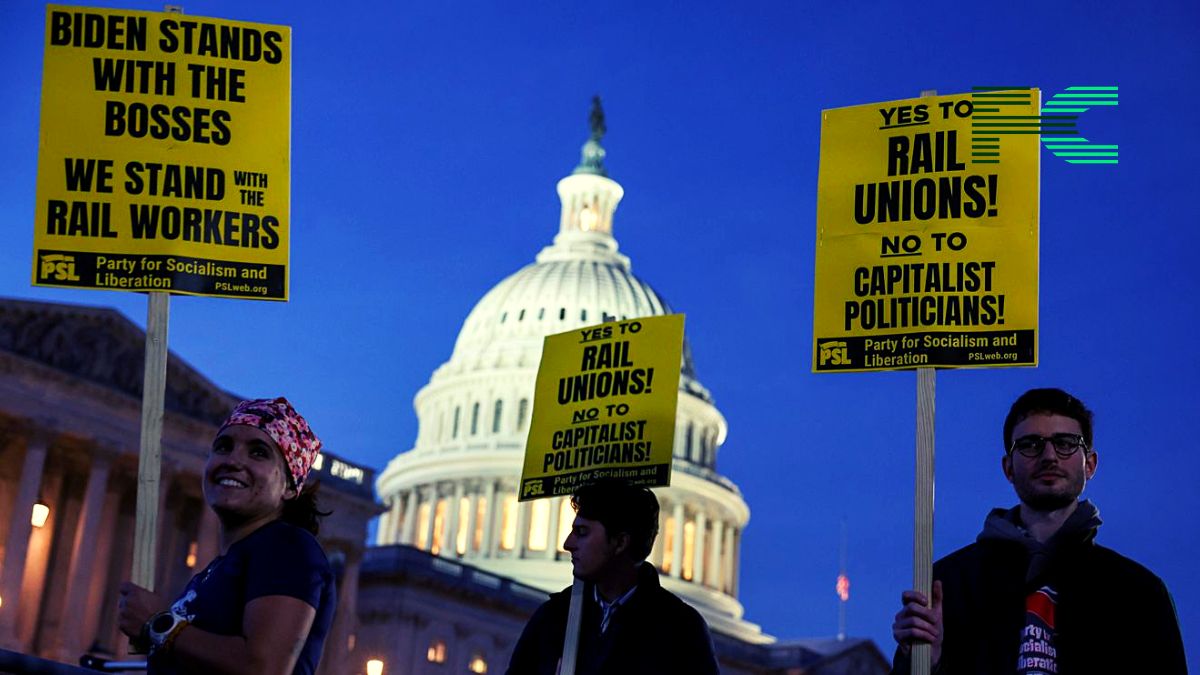A motion to halt a rail workers’ strike that would have a catastrophic effect on the US economy has been unanimously adopted by the US Senate.
The Senate approved a bill that requires 12 unions that represent railroad workers to enter into a contract agreement by an 80 to 15 vote.
As US President Joe Biden encouraged lawmakers to move fast to prevent a strike, it was approved in a hastened vote.
However, a proposal to include paid sick leave for employees was rejected.
After Vice President Biden warned that a strike by railroad workers might have a severe economic impact and “affect millions of other working people and families,” the bill was introduced in Congress.
The proposal will now land on the president’s desk. Any strike action after the measure is passed would be forbidden.
The bill’s passage by Congress, according to Mr. Biden’s comments, has “spared this country a Christmas disaster.”
The flow of fuel, medication, and other essential supplies would be disrupted by a strike, according to business organizations, costing an estimated $2 billion (£1.67 billion) every day.
Additionally, up to seven million commuter rail passengers every day might experience service disruptions.
Without Congress’s intervention, the rail workers’ strike would have started as soon as December 9.
The Senate voted quickly on Thursday, agreeing to take three consecutive votes on the matter – one on the bill and two on proposed modifications. Ordinarily, it takes days of procedural votes for the upper chamber to enact a law.
The legislation that was passed on Thursday, one day after the House of Representatives gave it approval, imposes a prior agreement with the unions representing railway workers that included a 24% rise and $5,000 in incentives distributed over several annual payments.
The amount that employees are expected to pay for their health insurance is also increasing, but the rates are restricted to 15%.
Four of the 12 labor unions involved in the negotiations rejected the agreement reached in September by the Biden administration because it did not include paid sick time.
Seven paid sick days were added to the measure by Senator Bernie Sanders’ amendment, but it was rejected by the Senate on a 52-to-43 vote since it required at least 60 votes to pass.
Another amendment offered by Alaskan Senator Dan Sullivan called for extending talks between unions and rail companies for 60 days after the original deadline of December 8; nevertheless, it was defeated 26-69.
A separate paid sick leave plan for railroad employees was approved by the US House of Representatives on Wednesday, but the Senate has not yet taken a vote.
Workers would be entitled to seven days of paid sick leave annually under the proposed law. Republicans in Congress and the US Chamber of Commerce opposed it, claiming that a sick leave bill “would impose an unrealistic, one-sided amendment to a labor agreement.”
The unions, who had previously stated a preference for greater wages and robust disability insurance over sick days, argued that the enormously successful train firms could afford them with little damage during earlier negotiations, which sparked a heated debate over paid sick leave.














